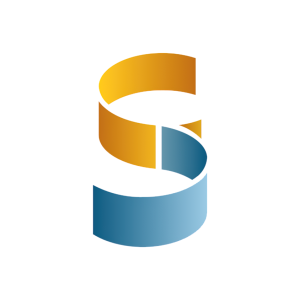Clearside Biomedical Announces Positive Topline Results from ODYSSEY Phase 2b Trial of Suprachoroidal CLS-AX in Wet AMD Achieving All Primary and Secondary Outcomes
Rhea-AI Summary
Clearside Biomedical (Nasdaq: CLSD) announced positive topline results from its ODYSSEY Phase 2b trial of CLS-AX for treating wet AMD. The trial achieved all primary and secondary outcomes, demonstrating:
1. Stable visual acuity and anatomical control over 9 months
2. Positive safety profile with no ocular or treatment-related serious adverse events
3. 67% of CLS-AX participants not requiring additional treatment up to 6 months
4. 84% reduction in treatment burden over 6 months
CLS-AX, delivered via Clearside's proprietary SCS Microinjector®, showed potential for flexible maintenance dosing between 3 to 6 months. The company plans to advance the program into Phase 3 development based on these encouraging results.
Positive
- Achieved all primary and secondary outcomes in ODYSSEY Phase 2b trial
- Maintained stable visual acuity and anatomical control over 9 months
- 67% of CLS-AX participants did not require additional treatment up to 6 months
- Reduced treatment burden by 84% over 6 months
- Well-tolerated safety profile with no ocular or treatment-related serious adverse events
- Potential for flexible maintenance dosing between 3 to 6 months
- Plans to advance CLS-AX wet AMD program into Phase 3 development
Negative
- None.
News Market Reaction 1 Alert
On the day this news was published, CLSD declined 11.49%, reflecting a significant negative market reaction.
Data tracked by StockTitan Argus on the day of publication.
- Maintained Stable Visual Acuity and Anatomical Control Over 9 Months -
- Positive Safety Profile with No Ocular or Treatment-Related Serious Adverse Events -
-
- Reduced Treatment Burden by
- Webcast and Conference Call Today at 8:00 A.M. ET with Management and Key Opinion Leader and Board-Certified Retinal Specialist, Roger Goldberg, M.D., MBA -
ALPHARETTA, Ga., Oct. 09, 2024 (GLOBE NEWSWIRE) -- Clearside Biomedical, Inc. (Nasdaq: CLSD), a biopharmaceutical company revolutionizing the delivery of therapies to the back of the eye through the suprachoroidal space (SCS®), announced today that the ODYSSEY Phase 2b clinical trial of CLS-AX (axitinib injectable suspension) for the treatment of neovascular age-related macular degeneration (wet AMD) achieved both its primary and secondary outcomes. In participants who received CLS-AX delivered suprachoroidally, best corrected visual acuity (BCVA) and ocular anatomy (central subfield thickness) were stable up to 6 months compared to participants who received aflibercept. In addition, CLS-AX demonstrated a well-tolerated safety profile to Week 36 inclusive of mandatory re-dosing of CLS-AX at Week 24.
“We are very excited to report positive topline data from our successful ODYSSEY Phase 2b trial,” said George Lasezkay, PharmD, JD, President and Chief Executive Officer, Clearside Biomedical. “These encouraging results strongly support advancing our CLS-AX wet AMD program into Phase 3 development and provide further evidence of the potential benefits of delivering medicines to the back of the eye using our proprietary SCS Microinjector®. We achieved our primary outcome of maintaining stable BCVA throughout the trial as measured by the mean change in BCVA from baseline to Week 36. CLS-AX consistently reduced the frequency of injections after the initial dose of CLS-AX with approximately
Victor Chong, M.D., MBA, Chief Medical Officer of Clearside, added, “CLS-AX demonstrated extended duration and stable vision and anatomic measures throughout the trial in a difficult-to-treat patient population with reading center confirmed active disease early in their treatment journey. ODYSSEY confirmed the ability to administer multiple doses of CLS-AX from 12 weeks up to 36 weeks with a well-tolerated safety profile. We believe the ability to deliver multiple doses as needed between 12 and 36 weeks is a key differentiator from other treatments in development. In the trial, we observed that CLS-AX, delivered into the suprachoroidal space using our SCS Microinjector®, can be flexibly dosed similar to current biologic treatments, but has the potential to last longer because it is a highly potent tyrosine kinase inhibitor that achieves pan-VEGF blockade. Our goal is to provide a new and important treatment option with meaningful efficacy, safety, and delivery benefits for patients and retina specialists. These topline results provide valuable data in wet AMD with repeat dosing data to better inform our planned Phase 3 program design.”
David M. Brown, M.D., Director of Research, Retina Consultants Houston, commented, “These data are encouraging and demonstrate that suprachoroidal CLS-AX may have sustained durability beyond our currently approved agents. The positive safety profile, potential flexible dosing and delivery of CLS-AX directly to the back of the eye via Clearside’s SCS Microinjector has the potential to improve the treatment landscape for patients and physicians looking for a long-acting treatment for wet AMD.”
ODYSSEY Topline Data Summary
ODYSSEY was a randomized, double-masked, parallel-group, active-controlled, multicenter, 36-week, Phase 2b clinical trial in participants with wet AMD previously treated with intravitreal anti-vascular endothelial growth factor (VEGF) standard of care therapy. A total of 60 participants were treated for 36 weeks and randomized to either CLS-AX (1 mg) or aflibercept (2 mg) with a 2:1 randomization schedule (40 participants in CLS-AX arm and 20 participants in aflibercept arm). CLS-AX was administered by suprachoroidal injection via Clearside’s SCS Microinjector, and aflibercept was administered via intravitreal injection. Participants in the trial were determined to have active disease with a median duration of wet AMD diagnosis of 9.9 months. Eligible participants underwent diagnostic imaging at their screening visit, followed by masked reading center confirmation of persistent active disease.
Primary and Secondary Outcomes
The ODYSSEY trial achieved its primary and secondary outcomes including the mean change from baseline in BCVA, changes from baseline in visual function and ocular anatomy, the need for supplemental treatment, treatment burden as measured by total injections over the trial duration, and safety measures.
CLS-AX Efficacy Results
- Maintained stable BCVA throughout the trial as measured by the mean change in BCVA from baseline to Week 36.
- Maintained stable central subfield retinal thickness (CSRT) throughout the trial as measured by the mean change in CSRT from baseline to Week 36, as confirmed by the independent reading center.
CLS-AX Durability Results
- CLS-AX participants not requiring any additional treatment:
100% up to 12 weeks (3 months); n=40/4090% up to 16 weeks (4 months); n=35/3981% up to 20 weeks (5 months); n=30/3767% up to 24 weeks (6 months) before mandatory re-dosing at Week 24; n=26/39
- Reduced injection frequency by approximately
84% compared to the average monthly injections in the 24 weeks prior to screening
CLS-AX Safety and Tolerability Results
- Well-tolerated safety profile through 36 weeks that included mandatory re-dosing of CLS-AX at Week 24
- No ocular serious adverse events (SAEs) or treatment-related SAEs
- No drug or procedure-related ocular SAEs
- No reported drug or procedure-related systemic SAEs
- No endophthalmitis
- No retinal vasculitis
- Positive adverse event profile
- Similar discontinuation rates between treatment and comparator groups
Conference Call & Webcast Details
Clearside will host a webcast and conference call with accompanying slides today at 8:00 A.M. ET, including comments by management and key opinion leader Roger Goldberg, M.D., MBA, who is a board-certified retinal surgeon at the Bay Area Retinal Associates Medical Group. The live and archived webcast with slides may be accessed on the Clearside website under the Investors section: Events and Presentations. The live call can be accessed by dialing (888) 506-0062 (domestic) or (973) 528-0011 (international) and entering conference code: 494679.
About CLS-AX (axitinib injectable suspension)
Clearside is developing CLS-AX as a longer-acting therapy for the treatment of retinal diseases. CLS-AX (axitinib injectable suspension) is a proprietary suspension of axitinib for suprachoroidal injection. Axitinib is a tyrosine kinase inhibitor (TKI), currently approved as an oral tablet formulation to treat advanced renal cell carcinoma, that achieves pan-VEGF blockade, directly inhibiting VEGF receptors-1, -2, and -3 with high potency and specificity. Clearside believes this broad VEGF blockade may have efficacy advantages over existing retinal therapies by acting at a different level of the angiogenesis cascade and may benefit patients who sub-optimally respond to current, more narrowly focused anti-VEGF therapies. Suprachoroidal injection of this proprietary suspension of axitinib has demonstrated meaningful potential in preclinical studies in multiple species, and in both Phase 1/2a and Phase 2b wet AMD clinical trials in which CLS-AX was well tolerated and demonstrated a positive safety profile. With suprachoroidal administration of axitinib, there is the potential to achieve prolonged duration and targeted delivery to affected tissue layers by compartmentalizing axitinib behind the retina, thereby limiting drug exposure to the front of the eye.
About Age-Related Macular Degeneration (AMD)
Age-related macular degeneration causes a progressive loss of central vision and is the most common cause of legal blindness in individuals over age 55. Neovascular AMD (wet AMD) is generally caused by abnormal blood vessels that leak fluid or blood into the macula, the part of the retina responsible for central vision, and accounts for the majority of vision loss in patients with this disorder. Approximately 11 million patients in the U.S. are living with AMD1, and about
Sources
1 Pennington, Katie L and DeAngelis, Margaret M, Eye and Vision, Epidemiology of age-related macular degeneration (AMD): associations with cardiovascular disease phenotypes and lipid factors, Dec 22, 2016.
2 Prall, F Ryan and Ciulla, Thomas A, Medscape: Exudative (Wet) Age-Related Macular Degeneration (AMD), June 16, 2022.
3 Retina International, The Socio-economic Impact of Age-related Macular Degeneration (AMD) in Bulgaria, Germany, and USA, Oct 12, 2022.
About Clearside’s Suprachoroidal Space (SCS®) Injection Platform and SCS Microinjector®
Clearside’s patent protected, proprietary suprachoroidal space (SCS®) injection treatment approach offers unprecedented access to the back of the eye, where sight-threatening disease often occurs. The Company’s unique platform is inherently flexible and intended to work with established and new formulations of medications. Clearside’s patented SCS Microinjector® can deliver a wide variety of drug candidates into the suprachoroidal space, providing targeted delivery to potentially improve efficacy and compartmentalization of medication to reduce or eliminate toxic effects on non-diseased cells. The SCS Microinjector system comprises a syringe, a custom-designed hub, and two 30-gauge hollow microneedles of varying lengths, each approximately one millimeter, optimizing insertion and suprachoroidal administration of drugs.
About Clearside Biomedical, Inc.
Clearside Biomedical, Inc. is a biopharmaceutical company revolutionizing the delivery of therapies to the back of the eye through the suprachoroidal space (SCS®) to improve patient outcomes. Clearside’s SCS injection platform, utilizing the Company’s patented SCS Microinjector®, enables an in-office, repeatable, non-surgical procedure for the targeted and compartmentalized delivery of a wide variety of therapies to the macula, retina, or choroid to potentially preserve and improve vision in patients with sight-threatening eye diseases. Clearside is developing its own pipeline of small molecule product candidates for administration via its SCS Microinjector. The Company’s lead program, CLS-AX (axitinib injectable suspension), for the treatment of neovascular age-related macular degeneration (wet AMD), recently completed a Phase 2b clinical trial, and planning for a Phase 3 program is underway. Clearside developed and gained approval for its first product, XIPERE® (triamcinolone acetonide injectable suspension) for suprachoroidal use, which is available in the U.S. through a commercial partner. Clearside also strategically partners its SCS injection platform with companies utilizing other ophthalmic therapeutic innovations. For more information, please visit clearsidebio.com or follow us on LinkedIn.
Cautionary Note Regarding Forward-Looking Statements
Any statements contained in this press release that do not describe historical facts may constitute forward-looking statements as that term is defined in the Private Securities Litigation Reform Act of 1995. These statements may be identified by words such as “believe”, “expect”, “may”, “plan”, “potential”, “will”, and similar expressions, and are based on Clearside’s current beliefs and expectations. These forward-looking statements include statements regarding the clinical development of CLS-AX (including any future clinical trials), and the potential benefits of CLS-AX, Clearside’s suprachoroidal delivery technology and Clearside’s SCS Microinjector®. These statements involve risks and uncertainties that could cause actual results to differ materially from those reflected in such statements. Risks and uncertainties that may cause actual results to differ materially include uncertainties inherent in the conduct of clinical trials, Clearside’s reliance on third parties over which it may not always have full control and other risks and uncertainties that are described in Clearside’s Annual Report on Form 10-K for the year ended December 31, 2023, filed with the U.S. Securities and Exchange Commission (SEC) on March 12, 2024, Clearside’s Quarterly Report on Form 10-Q for the quarter ended June 30, 2024, filed with the SEC on August 12, 2024, and Clearside’s other periodic reports filed with the SEC. Any forward-looking statements speak only as of the date of this press release and are based on information available to Clearside as of the date of this release, and Clearside assumes no obligation to, and does not intend to, update any forward-looking statements, whether as a result of new information, future events or otherwise.
Investor Contacts:
Jenny Kobin
Remy Bernarda
ir@clearsidebio.com
Media Contact:
Emma Yang
media@clearsidebio.com
Source: Clearside Biomedical, Inc.








